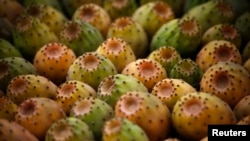Navigation
Install the app
How to install the app on iOS
Follow along with the video below to see how to install our site as a web app on your home screen.
Note: This feature may not be available in some browsers.
More options
You are using an out of date browser. It may not display this or other websites correctly.
You should upgrade or use an alternative browser.
You should upgrade or use an alternative browser.
Brain Food
- Thread starter Unkotare
- Start date
I go to Illegal Seafood. They work harder and charge less.Might have to take the family out to Legal Seafood tonight!
Alex.
Diamond Member
- Aug 18, 2014
- 9,894
- 4,980
- 2,095
- Banned
- #3
Was just there and I was questioned whether I support Clinton

Legal Sea Foods in hot water over latest ad featuring Cold Fish Hillary Clinton

Legal Sea Foods in hot water over latest ad featuring Cold Fish Hillary Clinton
waltky
Wise ol' monkey
Granny says dat's why people lived to ripe old ages inna Biblical times...

Chemical Extracts from Mediterranean Plants May Help Brain Diseases
January 09, 2017 | WASHINGTON — Extracts from plants found in abundance in and around the Mediterranean eventually may be used to help treat people with Alzheimer's and Parkinson's disease.
Chemical Extracts from Mediterranean Plants May Help Brain Diseases
January 09, 2017 | WASHINGTON — Extracts from plants found in abundance in and around the Mediterranean eventually may be used to help treat people with Alzheimer's and Parkinson's disease.
Scientists said chemicals in prickly pear and brown seaweed appear to interfere with the formation of sticky plaques found in the brains of those suffering from the two neurodegenerative, age-related diseases. The plaques are a hallmark of both Alzheimer's and Parkinson's that lead to a gradual reduction in brain function and to death.

Prickly pears are displayed for sale at a stall in Beirut, Lebanon, July 22, 2014. A dozen prickly pears are sold for approximately $4 in the Lebanese market.
The extracts, said researchers, appeared to replace the harmful sticky clumps with deposits that were less toxic. Researchers at the University of Malta and the National Center of Scientific Research at the University of Bordeaux tested the plants' chemical extracts on Brewer's yeast with beta amyloid deposits, similar to those seen in Alzheimer's disease.
Study done using fruit flies
Scientists said the yeast's health improved dramatically after exposure to the chemicals. They next tested the extracts in fruit flies that were genetically modified to develop symptoms of Alzheimer's. When the flies were given brown seaweed extract, their lifespans increased by two days, according to investigators. Prickly pear prolonged the insects' lives by four days. Researchers said one day in the life of a fruit fly is the equivalent to a human year. Significantly, improvement was noted in the movement of some of the diseased insects.
Gummy protein overload
In a fly model of Parkinson's disease, scientists discovered the extracts also extended the lifespan of flies whose brains were overloaded with a gummy protein implicated in Parkinson's disease called alpha-synuclein. The research was reported in the journal Neuroscience Letters. Researchers said it appears the same biological pathways in the brain lead to the formation of sticky plaques seen in both diseases. They added that targeting those pathways is the most promising avenue in the fight against the neurodegenerative diseases.
Extracts are very safe
Lead author Ruben Cauchi of the University of Malta's Center for Molecular Medicine and Biobanking said the Mediterranean plant extracts already are on the market in health foods and some cosmetics, making them very safe. The research team is working with a company that extracts the chemicals for commercial use as “fountain of youth” preparations.
Chemical Extracts from Mediterranean Plants May Help Brain Diseases
owebo
Gold Member
Packed with democrats?I go to Illegal Seafood. They work harder and charge less.Might have to take the family out to Legal Seafood tonight!

xband
Gold Member
- Jan 5, 2016
- 6,200
- 1,467
- 140
Might have to take the family out to Legal Seafood tonight!
The ancient Greeks thought cabbage a brain food. Corned Beef and Cabbage, yum yum
Similar threads
- Replies
- 80
- Views
- 539
- Replies
- 195
- Views
- 2K
- Replies
- 56
- Views
- 2K
Latest Discussions
- Replies
- 93
- Views
- 477
- Replies
- 42
- Views
- 315
Forum List
-
-
-
-
-
Political Satire 9253
-
-
-
-
-
-
-
-
-
-
-
-
-
-
-
-
-
-
-
ObamaCare 781
-
-
-
-
-
-
-
-
-
-
-
Member Usernotes 497
-
-
-
-
-
-
-
-
-
-